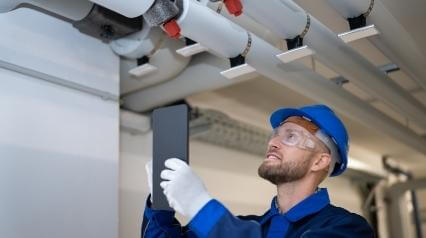The work of a professional Water Mitigation Specialist involves protecting the company’s assets and maintaining a close relationship with mitigation vendors. You have several options if you’re considering a Water Mitigation Specialist career. First, you should consider the benefits of such a position. Moreover, you can expect to work on a team that values its members. In addition, this role requires you to commute to Mutual’s property office at least once a quarter.

Hiring a professional is always recommended. While you can try to salvage some items yourself, you may risk causing further damage. That’s why you need to hire a professional. A Water Mitigation Specialist has the experience and equipment to deal with various types of water damage. These professionals can also calculate the extent of water damage and prepare insurance claims for you. Once these tasks are complete, the property will be ready for sale.
Water Mitigation specialists will work to assess the damage caused by flooding and determine which items can be salvaged and which ones need to be disposed of. Often, items below the flood line need to be disposed of. Mold typically develops within a few days after a flood. In Acworth’s moist environment, mold grows and thrives. You’ll benefit from their expertise and the latest technology by hiring a water mitigation company.
Professionals in the field of water mitigation are trained and certified to meet industry standards. These organizations include the Restoration Industry Association, the Water Loss Institute, and the IICRC. These associations publish accepted standards for water damage mitigation and testing equipment for the industry. Their protocols help water mitigation specialists locate damage that the naked eye cannot see. They also know how to determine the level of moisture in a structure, which is crucial for reconstruction.
A career as a Water Mitigation Specialist involves responding to water events, performing water mitigation services, and asbestos/lead abatement. In addition to this, they also perform related tasks, including supporting field data collection efforts. This position requires a Bachelor’s degree in engineering and 0 to 2 years of experience. While it does require specialized training, you’ll be well-paid, with a steady stream of opportunities for growth.
There are 3 primary categories of water damage. Categories one and two are related to plumbing and appliances, and they do not pose a health risk for a few days. Category three concerns sewage and water in contact with the ground or long-standing water. These categories’ cleanup and restoration process requires special procedures and an anti-microbial expert. And for the most severe water damage, a Water Mitigation Specialist is your best bet.
Besides earning a higher salary as a Water Mitigation Specialist, you can also move to another company, which may pay more. The best way to increase your salary is to continue your education. If you have an advanced degree, you could also pursue higher pay. If you’ve managed multiple projects, you might also get promoted. Besides, a Water Mitigation Specialist who has experience in managing projects can expect to earn more money.
Even if you have only minor water damage, you should still call a professional water mitigation specialist to help you clean up the area. It’s possible to clean up the water yourself, but doing it yourself can result in extensive damage. Besides, water is a powerful agent of bacteria and algae growth. You don’t want to risk your property by attempting to clean up the mess yourself. For that reason, it’s best to leave the water mitigation job to a professional company.
The process of water cleanup and mitigation are two separate processes. The first is about removing damaged materials and restoring the structure of your home, while the latter focuses on repairing the damage that already occurred. Mitigation is aimed at preventing further damage while restoration deals with restoring what’s already been damaged. While restoration is more extensive, mitigation services focus on preventing water damage from happening again. You’ll have to determine whether you need a Water Mitigation Specialist, a professional who specializes in these fields, will be able to meet your needs.
